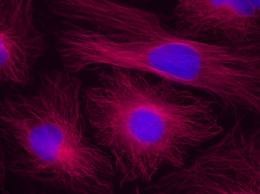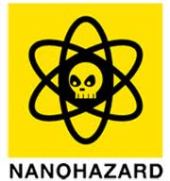(Nota Bene: This post might make you think I’m against all things nano. I’m not.)
Nanopollution. How many of you have actually thought about it? About how to handle it, when we barely know what to do with the “regular” kind. Nanopollution, or pollution in general, might not be something that anyone really wants to think about but it won’t go away if we just hide our heads in the sand. And maybe pollution isn’t ethically or morally ambiguous or questionable, or any of those nice long words really, in itself but… What about its effects? Or what about the impact of nanomaterials in general, be it environmental or not?
As always, the first threat, risk or danger (whatever you wish to call it) that comes to mind is the one sci-fi has been imagining for us for years; the possibility that self-replicating nanobots could, slowly or aggressively, wipe out the whole biosphere. Yeah, maybe not.
But what about other, more realistic, concerns?
There’s the possibility that nanoproduct applications, not to mention the waste produced, could further destabilize the already endangered diversity of the biosphere, for one. Not to even mention what using nanoparticles might do to the human body. For example, breathing in particles around 20 nm was found to be lethal when 130 nm particles were entirely harmless in the air passing to your lungs.
The mistake that was made with GMOs, that of rubberstamping patents without taking a closer look at safety regulations, should not be made with this new and exciting world of nanoproducts. Nanomaterials and applications should be studied and not just because they may have a physical impact on the world around us, but also because there might be ethical questions raised, like “if we try and fix this unbalanced relationship between these two symbiotic creatures, will it actually fix the problem or will it give birth to something worse?”
What about the waste produced then? Most contemporary industrial processes produce non-biodegradable waste that just gets hauled to the dump or burned. In this way, nanotechnology opens a whole new world for us. A world, where the principles of green chemistry give us a firm foundation on which to build sustainable symbiotic processes with the possibility of zero waste and thus zero potentially harmful nanomaterials released to wreck havoc.
With all of these new things coming to existence with just the addition of “nano” onto a word, some might be frightened and demand banning everything related to it. Some might find it science fiction (Heaven knows my mom does) and some might leap head first into trying anything and everything new that comes with it. But maybe the middle road is the best way to go, go with enthusiasm but with appropriate caution.
In the end, can we ever even imagine, at this moment in time, what nanotechnology can become in the future, with or without human interference?
P.S. If you find pop culture references, yes they are there on purpose…most likely ^^
~Tuuli
Sources: Wikipedia’s article on Nanopollution & Nanotechnologies: What we do not know by Vuk Uskokovic (published in Technology in Society, vol 29, p 43-61), image from: http://2.bp.blogspot.com/_JT5P-RJi06I/TF43PhGXq5I/AAAAAAAAAEI/fhH0qpAXo80/s200/nanohazard.jpg


I would say that especially with everything new and promising we shouldn’t think light-headed about the risks. It was only few decades ago, when asbest for example was totally safe and great new material. Well, it isn’t anymore.
So better to always raise some doubts.
-Jenni
Interesting point of view! Did you find any articles or other examples about the current issue? Aren’t regulations and laws around nanotechnology strict enough to prevent these kinds of scenarios? Thoughts??
-Admins